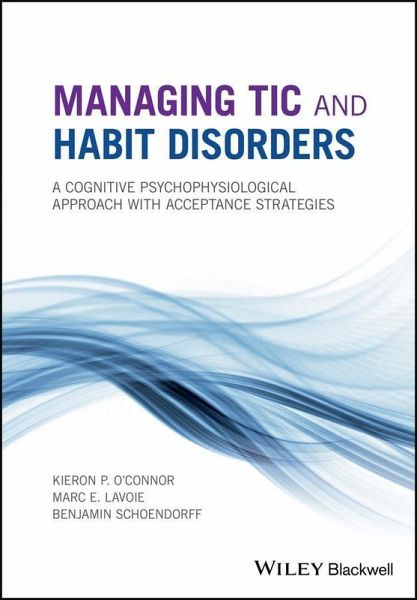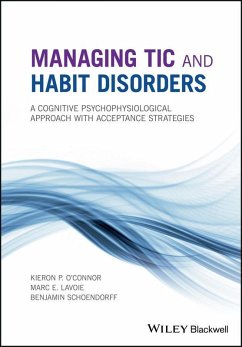
Managing Tic and Habit Disorders (eBook, ePUB)
A Cognitive Psychophysiological Treatment Approach with Acceptance Strategies
Versandkostenfrei!
Sofort per Download lieferbar
43,99 €
inkl. MwSt.
Weitere Ausgaben:

PAYBACK Punkte
0 °P sammeln!
A pioneering guide for the management of tics and habit disorders Managing Tic and Habit Disorders: A Cognitive Psychophysiological Approach with Acceptance Strategies is a complete client and therapist program for dealing with tics and habit disorders. Groundbreaking and evidence-based, it considers tics and habit disorders as part of the same spectrum and focuses on the personal processes that are activated prior to a tic and habit rather than the tic or habit itself. By drawing on acceptance and mindfulness strategies to achieve mental and physical flexibility in preparing action, individua...
A pioneering guide for the management of tics and habit disorders Managing Tic and Habit Disorders: A Cognitive Psychophysiological Approach with Acceptance Strategies is a complete client and therapist program for dealing with tics and habit disorders. Groundbreaking and evidence-based, it considers tics and habit disorders as part of the same spectrum and focuses on the personal processes that are activated prior to a tic and habit rather than the tic or habit itself. By drawing on acceptance and mindfulness strategies to achieve mental and physical flexibility in preparing action, individuals can release unnecessary tension, expend less effort and ultimately establish control over their tic or habit. The authors explain how to identify the contexts of thoughts, feelings and activities that precede tic or habit onset, understand how self-talk and language can trigger tic onset, and move beyond unhelpful ways of dealing with emotions - particularly in taking thoughts about emotions literally. They also explore how individuals can plan action more smoothly by drawing on existing skills and strengths, and overcome shame by becoming less self-critical and more self-compassionate. They conclude with material on maintaining gains, developing new goals, and creating a more confident and controlled lifestyle. Managing Tic and Habit Disorders is a thoughtful and timely guide for those suffering from this sometimes all-consuming disorder, and the professionals who set out to help them.
Dieser Download kann aus rechtlichen Gründen nur mit Rechnungsadresse in D ausgeliefert werden.












